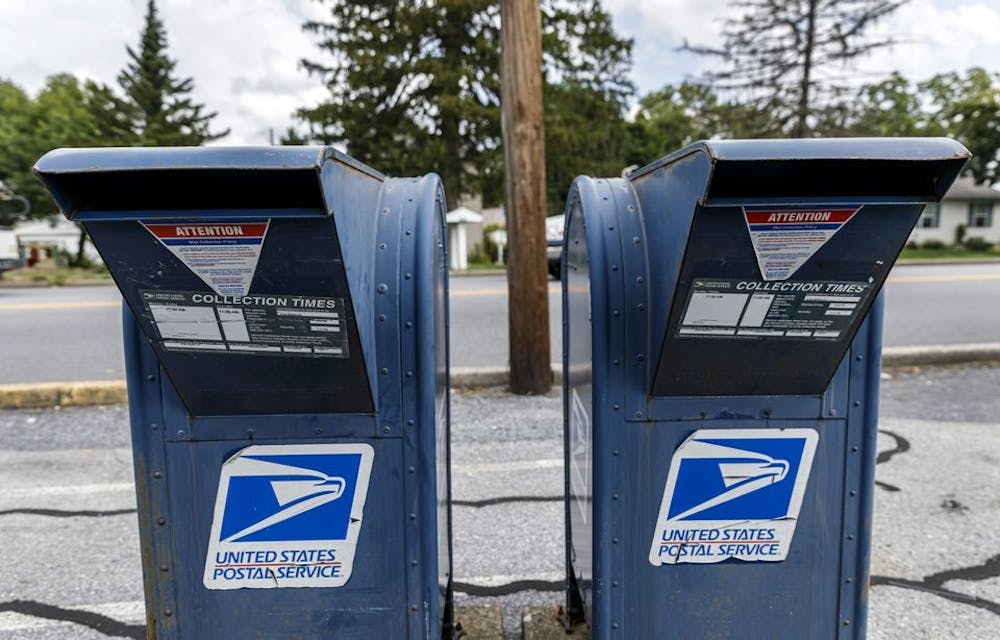The COVID-19 pandemic has raised concerns about voting in person this November, forcing the country to look for alternatives. The immediate response in parts of government has been to use mail-in ballots, but the idea faces criticism from President Donald Trump and other Republicans.
Mail-in voting has gained popularity during the pandemic, but that does not mean it comes without its issues. Signature verification issues on ballots could result in many being deprived of their ability to vote. Students who plan to vote risk their vote not being counted unless signature verification is improved and if ballots are not filled out correctly.
Students who vote outside of Bloomington this November will have to vote via an absentee ballot, which will be returned through the United States Postal Service. Absentee ballots typically require an excuse such as a student being away at college. Mail-in ballots were given an eligibility expansion in Indiana during the primaries, but Gov. Eric Holcomb opposes applying the same measure to the November election.
IU students, if they plan on voting with an absentee ballot, must be extremely cognizant when signing their ballot. Issues of signature verification from mail-in and absentee ballots have caused many voters to lose their voice in the past. The issue with signature verification, now that it will be done on a large scale, is that anyone’s vote could be struck down due to their signatures not looking similar enough.
The signature verification process is one of the more primitive things done at polling locations. Every vote cast via mail goes through a manual signature verification process. The verifying signatures involve a trained judge comparing the voter’s signatures on their application and the ballot. The judge looks at every aspect of how the voter signs their name and then determines if the vote is valid.
During the Democratic Presidential primaries, Americans experienced their first trial-run with voting during a pandemic. In Michigan, 80% of the 10,600 rejected absentee or mail-in ballots were due to signature verification issues or late-arrival. The same issue occurred in Wisconsin with 23,000 ballots rejected mostly due to the voter missing one line on the form. These issues undeniably impacted the results of those primaries and make it rather troubling to envision the November election being different without any changes.
Trump opposes mail-in ballots due to his concern with voter fraud. There have been examples of this in the past such as in Philadelphia earlier this year where a congressman was charged with stuffing ballot boxes. In 2018, a Florida man was arrested after he stole absentee ballots and voted with them illegally.
Since 2000, there have only been 44 cases of voter fraud out of 1 billion ballots cast. However, Trump insists mail-in voting would be corrupt and fail Republicans, saying it would prevent a Republican from ever being elected again. While universal mail-in voting would likely result in increased opportunities for voter fraud, it should not be a major concern as the numbers show the chances of it happening are unlikely.
Democrats are more likely to use mail-in ballots than Republicans. This could skew election results and could cause more Democratic voters to have their ballots rejected due to signature verification issues. As a result, their needs to be more education given to voters on how to fill out their ballots.
Overall, giving voters more education on how to fill out their ballot is the only way there could be an election that avoids massive amounts of rejections and counts every vote. The nation is currently risking disenfranchisement of voters and having an illegitimate election result. If nothing is done to solve the problem, the election has the potential to lose many student voices that need to be heard.
CORRECTION: A previous version of this article misstated the expansion of mail-in voting eligibility to the November election. The IDS regrets this error.
Armando Bracco (he/him) is a freshman studying journalism. He is interested in politics and political reporting.






